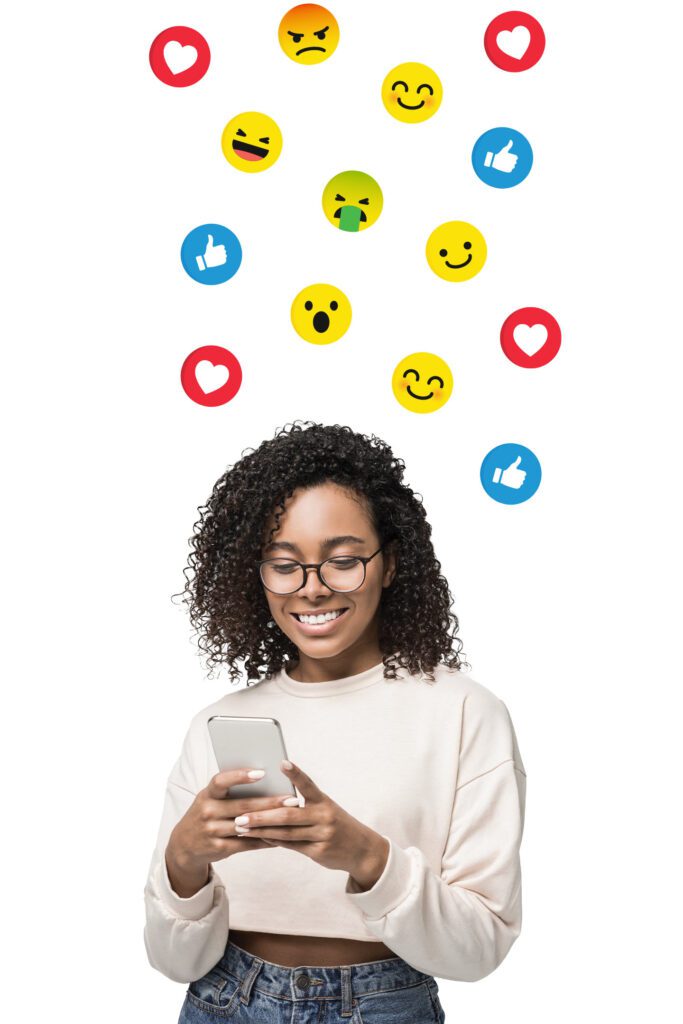Relationship Status: It’s Complicated
For better or worse, the emergence and rapid evolution of social media have changed society as we know it. In real-time, users can post statuses, share photos, videos, blogs – you name it, and there’s probably a specific platform for it.
These spaces were built to foster creative expression, community building, and career advancement among other positive initiatives. While many platforms have proven successful in these aims, studies have revealed that overuse or misuse of social media can lead to negative mental health outcomes. It’s important that social media users establish boundaries with their channels and curate networking spaces that leave them feeling fulfilled instead of drained. Here, with insights from a local professional, we will explore the many ways in which you can fashion a healthier relationship with social media.
John Daum is a content creator for First Things First, a Chattanooga-based relationship resource center devoted to helping families start and stay strong. As a content creator, Daum has found that social media can be an excellent tool for disseminating helpful information to people who otherwise wouldn’t be reachable. He’s also seen how social media can be critically useful in times of crisis to organize actions that bring relief and save lives. “This is social media and humanity at their best,” he says.
“On the flip side, social media can also be a tool for spreading toxicity, misinformation, and hate speech,” Daum explains. Overconsumption of such content can lead users to experience a variety of negative side effects including depression, anxiety, self-absorption, and feelings of isolation and inadequacy. “Social media platforms can be poor conduits for emotions, empathy, and genuine socialization,” says Daum. “This is why being a mindful user is critical.”


So, how can you tell if your relationship with social media is unhealthy? To start, Daum suggests asking yourself the following questions.
- Is my social media post more important than the experience itself?
- Does social media isolate me from the people I’m with?
- Is social media causing me to neglect my relationships and responsibilities?
- Does social media ever keep me from getting sleep?
- Are the ads negatively affecting my spending habits?
- Does social media make me feel angry, envious, stressed, or sad?
- Has social media become a coping mechanism for negative feelings or mental health issues that I need to address in a more proactive and productive way?
If you answered “yes” to one or more of these questions, it’s probably time to set some healthy boundaries with your social media accounts. Here’s how to get started:
1. Create goals for yourself that are measurable, reasonable, and achievable.
“Most phones provide a weekly report of how you’ve spent time on them,” says Daum. “Take a good hard look at those reports, and use that data to create goals for yourself such as spending one less hour a week on social.”
2. Gamify your goals, and get family and friends on board.
“Research suggests you’ll be more successful by making a game or competition out of your goals,” says Daum. For example, reward the family member who uses social media the least each week with a special prize.
3. Silence those notifications.
Daum has accounts on all the major platforms but makes a point to not engage with social media every day. “I keep notifications turned off so that I check social media when I want, not when it tells me to check it,” he says.
4. Take inventory of the accounts you follow.
Unfollow accounts and channels with posts that make you feel overwhelmed, angry, less than, or insecure. Make it a point to only follow and engage with accounts that bring positivity, motivation, and inspiration into your life.
5. Surf the social web as a family.
“My kids have introduced me to TikTok, and I’m amazed by the talented, hilarious, and informative content,” says Daum. “As a parent, this provides me a great opportunity to interact with my kids as we look at social media together and talk about it.”
6. Use your social media to bring something positive to a community.
“I think there’s a big difference between contributing, collaborating, and creating with other people on social media, versus simply consuming or conquering some digital real estate,” says Daum. “Picture the real human being on the other side of your screen and ask yourself, what positivity can you bring into their life?”
Whether social media is inherently good or bad is a debate we’ll never resolve, but the way you use it and the boundaries you set around it can help make your social networking experience a positive one. According to Daum, you’ll know that you’ve been successful when you can say to yourself: “Social media is a constructive and healthy part of my balanced lifestyle.”



John Daum
Content Creator, First Things First

